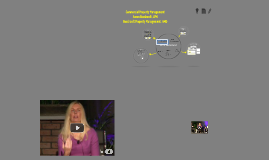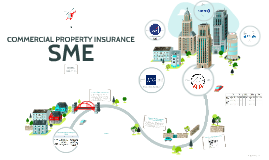Investing in Commercial Property
Transcript: Financial Breakdown Stamp Duty Understanding the financial implications of property investment is crucial. Key expenses such as Stamp Duty, Monthly Holding Costs, and Total Holding Expenses can significantly affect profitability. Knowing these costs aids in effective budgeting and financial planning. Analyzing these numbers provides insight into the investment's viability. Proper financial analysis ensures informed decision-making in property investment. Stamp Duty for the property is £2,010. This tax is applicable on property purchases above a certain threshold as dictated by the law. It is essential to factor Stamp Duty into your initial investment calculations. The rate can vary based on the overall purchase price, impacting total costs. Monthly Holding Costs Total Holding Expenses Monthly Holding Costs during the refinance period total £100. This includes costs like insurance which is critical for protecting the property throughout the investment process. Understanding these costs assists in cash flow management and overall budgeting. These costs need to be consistently monitored as they impact the net income from the property. Total Holding Expenses incurred come to £100. This figure should represent all ongoing costs that maintain the property as an asset until refinancing is complete. Accurate tracking of all expenses is vital for evaluating the property's profitability. This expense metric plays a crucial role in determining the cash flow situation during the holding period. Total Purchase Costs The total purchase costs of the property amount to £70,310. This figure includes the purchase price, stamp duty, and closing costs. Understanding total costs is crucial for assessing return on investment. Accurate cost assessment helps in forecasting future cash flows and profitability. Closing Costs Property Overview Total closing costs associated with the purchase amount to £1,300. Closing costs typically cover legal fees, title insurance, and transfer taxes. An important factor influencing total investment in the property. Awareness of these costs aids in accurate financial planning for investors. What is Loan-To-Value (LTV)? Introduction to key property details including address, purchase price, closing costs, and total purchase costs. Highlights the significance of understanding total investment in commercial properties. Provides transparency in financial commitments for potential investors. Sets the foundation for subsequent financial analysis and projections. Loan-To-Value (LTV) measures the ratio of a loan to the value of an asset purchased. A 75% LTV means the borrower funds 25% of the property value with equity. LTV influences interest rates and mortgage approvals. A lower LTV typically results in better loan terms and rates. Maintaining a healthy LTV is essential for refinancing opportunities. Investing in Commercial Property Required Loan Amount Breakdown Refinancing Details Required loan amount calculated at £67,500 based on LTV. This covers the expenses incurred during purchasing and refinancing. Loan amount must be justified with property valuation and rental income. A thorough financial analysis ensures the loan meets investment goals. Understanding payment capabilities is vital as property values fluctuate. Understand the Loan-To-Value ratio for optimal financing opportunities. Identify the required loan amount to meet project goals. Examine mortgage terms that align with financial strategies. Analyze mortgage rates to manage repayment costs effectively. Calculate the monthly mortgage payment to ensure affordability. Monthly Mortgage Payment Calculation Analyzing Mortgage Term Options Understanding Mortgage Fees Property Address Monthly payment calculated at £402.49 based on loan amount and term. Consistent cash flow is needed to manage this monthly expense effectively. Impact of interest rate adjustments must be accounted for in budgeting. Understanding the payment structure helps in financial planning. Monitoring other expenses against the monthly payment is necessary for profitability. Mortgage fees are assessed at £1,350 based on the loan agreement. Fees can include application, appraisal, and processing costs. Understanding total fees helps in calculating the effective loan amount. These fees must be considered in the overall refinancing strategy. Minimizing fees through negotiation can enhance profitability. A mortgage term of 25 years is conventional for long-term financing. Shorter terms may yield lower interest, while longer terms spread costs. Review the impact of different terms on monthly payments and total interest. Align mortgage terms with investment strategy and cash flow projections. Understanding the flexibility of terms is crucial in the refinancing process. Purchase Price Evaluating Mortgage Rate Impacts The mortgage interest rate is set at 5.00% for this investment. Rates significantly influence total payment amounts over the mortgage term. A higher rate can drastically

















